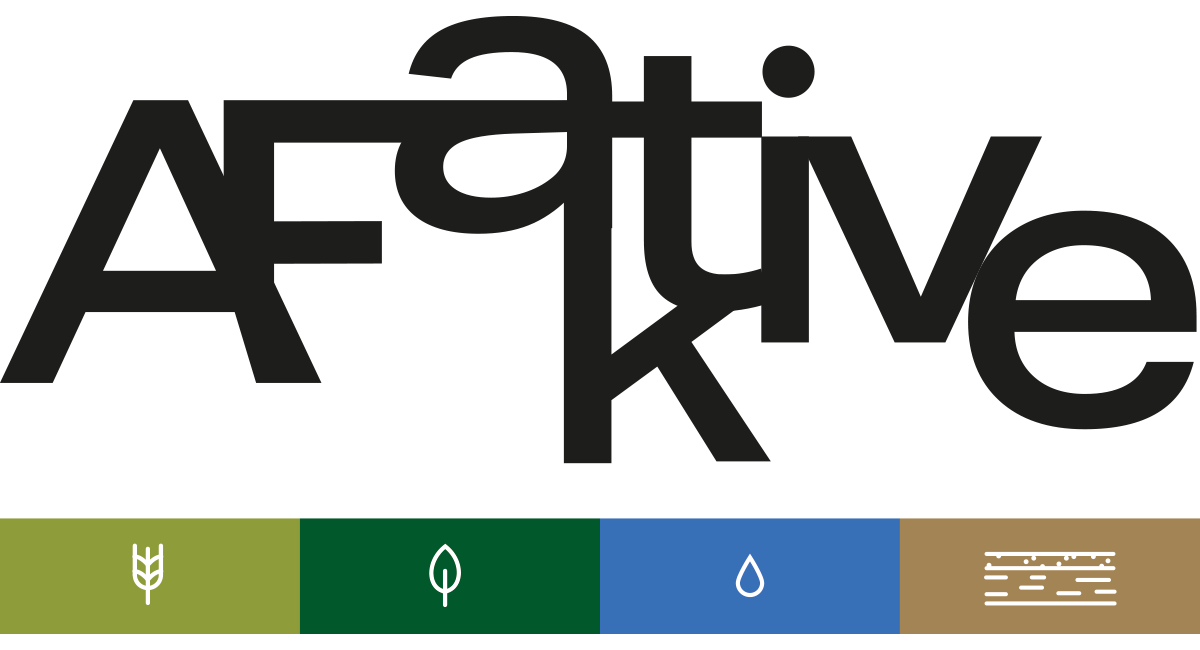On the 15th of October 2024, the event “Farming with Trees: the road to 2035” took place at ILVO. It was the highlight of ten years of strong collaboration among several Flemish partners engaging in agroforestry (the “Consortium Agroforestry Flanders”) and activities performed in a range of projects. A nice example of how partnerships and cross-project pooling of efforts can lead to impact.
How does agroforestry respond to the major challenges we face? What do we know about carbon sequestration, water management, biodiversity, microclimate, crop yields and other effects of agroforestry? How does the Consortium Agroforestry Flanders offer support and facilitate knowledge exchange? What are the next steps and who will take them? After 10 years of scientific research in Flanders as well as a strong connection with many EU research partners, the Consortium Agroforestry Flanders was able to give well-founded answers to these questions during this big agroforestry event. The Consortium also set the stage for the next 10 years. More than 200 farmers, policy makers, researchers and other stakeholders participated and provided input for a roadmap with concrete action points to make Flanders a stimulating environment for agroforestry. Mark Shepard, American pioneer and author of the book ‘Restoration Agriculture’, inspired with a keynote. As a scoop at this event, the organisers also launched a new “handbook for agroforestry in Flanders”.
Parallel workshops
The plenary sessions at the Agroforestry event “Farmers with trees: the road to 2035” were interspersed with two rounds of parallel workshops. Below, the sessions are listed.
- In conversation with Mark Shepard about research on agroforestry, restorative agriculture and water management.
- In this workshop, Mark Shepard engaged with researchers: why should we engage in research on agroforestry and other forms of restorative agriculture? Where are the greatest needs and issues? How does water management fit into this story? Within this workshop, the AFaktive work was made explicitly visible.
- Agroforestry and policy: opportunities, bottlenecks and the way forward.
- During this workshop, the participants engaged in discussions about legislation and policies relevant to agroforestry, drew inspiration from neighbouring countries, and put ideas on the table to remove barriers for agroforestry farmers.
- Getting started with the Agroforestry Planner: what can decision support tools do for you?
- When drawing up an agroforestry plan, a lot of decisions have to be made, and it can be challenging to predict an uncertain future. To provide support with this, the Consortium Agroforestry Flanders developed the Agroforestry Planner, a digital interactive platform with different modules for tree species selection (DENTRO), preparing a plan (BETULA), cost-benefit analysis (INTACT), estimating carbon sequestration (CARAT), and choosing nut harvesters (MIMOSA), among others. During this workshop, how to use the tools to their best advantage were explained.
- Link to presentation (in Dutch)
- Learning networks around agroforestry: lessons learned from previous projects and how to move forward?
- Agroforestry can be knowledge-intensive, requiring insights from many disciplines to make it a success story. In this workshop, it was discussed about how learning networks in recent years have been formed, in which farmers and other actors can share experiences and knowledge with each other. It was also reflected on how this can be followed up in the near future.
- The financial picture of agroforestry entrepreneurs: can agroforestry be profitable and what revenue models exist?
- For a lot of start-up agroforestry applicators, understanding costs, benefits and revenue models is a big question. Can agroforestry be profitable? What markets are there for products from agroforestry? We looked at a cost-benefit analysis of a specific case for inspiration and then interactively reflect together on possible earning models for agroforestry.
- Link to presentation (in Dutch)
Mark Shepard: agro-ecological approaches to water challenges
The keynote and workshops with Mark Shepard frame a full week around water + agroecology. To what extent does agroecology offer an answer to perishing climate records? And what role does water play in the agricultural system of the future? During this multi-day event from Oct. 14 to Oct. 19, 2024, a dialogue with everyone who wants to delve into these topics was initiated. From conscious gardener to concerned policy maker to proactive farmer. Relive it in this short aftermovie.
It was also the occasion to launch the documentary “Water on Flemish fields: what is going wrong?”. More information and an English subtitled version of the documentary will follow soon!
More info
Following the event, this press release was published. On this page, you can find all presentations, some video footage and other relevant information related to this event
Three long-term experimental and demo sites
Over the last few years, three experiment and demo sites were also set up in Flanders, at ILVO, Inagro and Praktijkpunt Landbouw Vlaams-Brabant. Each has its specificity and focus. The experiments going on at the ILVO site, include a walnut and hazelnut variety trial, an artificial shade trial to screen crop productivity optimization strategies, and experimentation on technical issues such as managing the tree strips.
More information and a set of short videos on this experimental work can be found here.
Three agroforestry ambassadors, a dynamic panel discussion and a concluding word by the Minister for Agriculture and Environment.
During the event, three “agroforestry ambassadors” were honored: stakeholders who have played an important role in putting agroforestry on the map in Flanders in recent years, or who will occupy a key position in the near future. The choice fell on Jeroen Watté, the duo Louis-Marie Tennstedt-Wouter De Stecker, and Daphne Ruigrok. Jeroen Watté is a former employee of Wervel and already brought agroforestry to the attention of Flanders in 2010. Louis-Marie Tennstedt is one of the very first pioneer farmers. His son-in-law Wouter De Stecker continues his agroforestry work. As a policy implementation advisor at the Agency for Agriculture and Marine Fisheries, Daphne Ruigrok helps farmers who want to get started with agroforestry.
A panel discussion was also part of the programme, with Elise Van Broeckhoven (farmer at Plukboerderij Grondig), Nico Vandervelpen (farmer at Hoeve De Peinwinning), Franky Bossuyt (professor at the University of Brussels), Jan Wyckaert (Rikolto – expert in sustainable retail) and Bram Bombeek (spokesperson and advisor to Minister Brouns).
As a conclusion of the day, the participants could watch this video message by minister Jo Brouns (in Dutch).
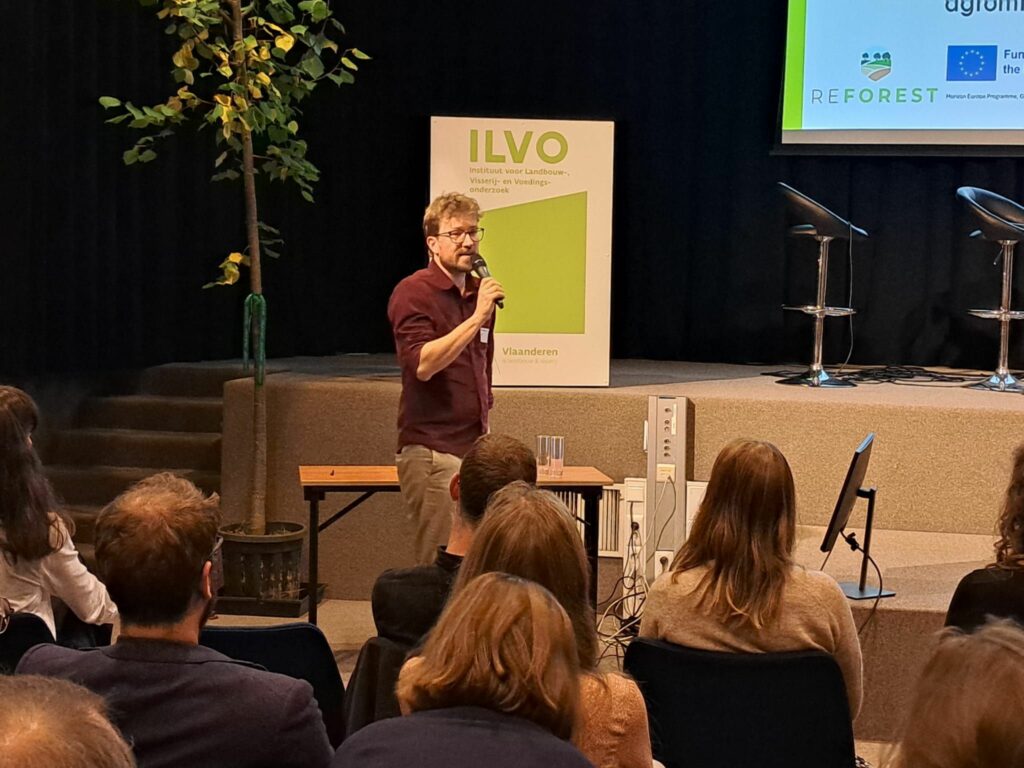
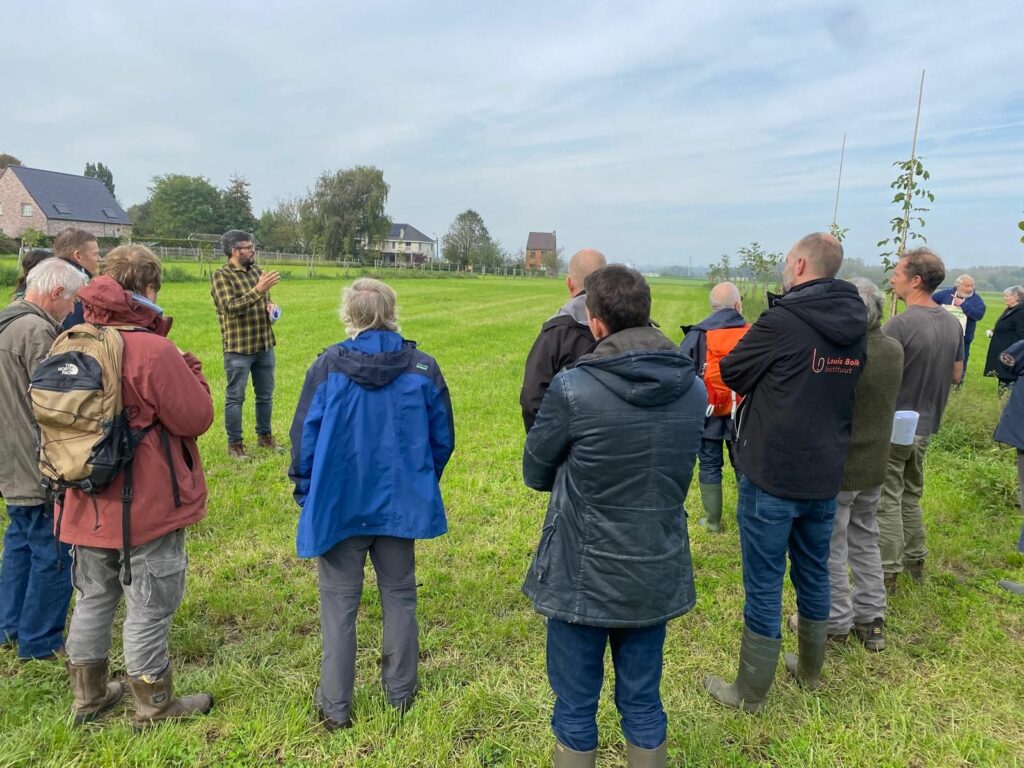
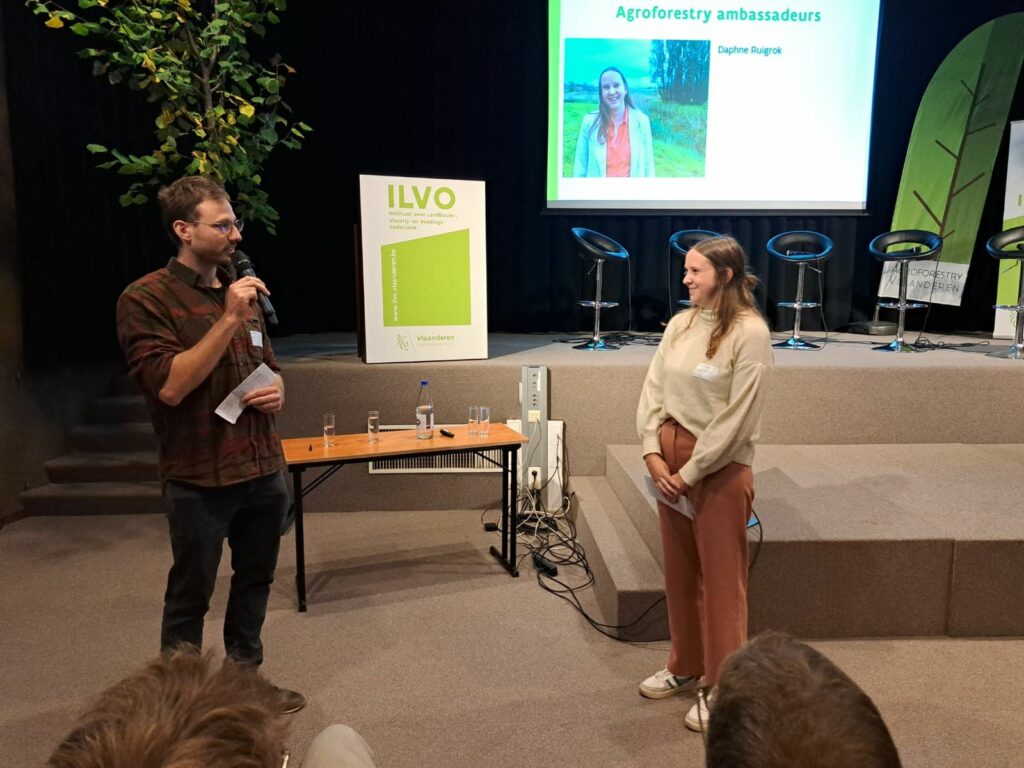
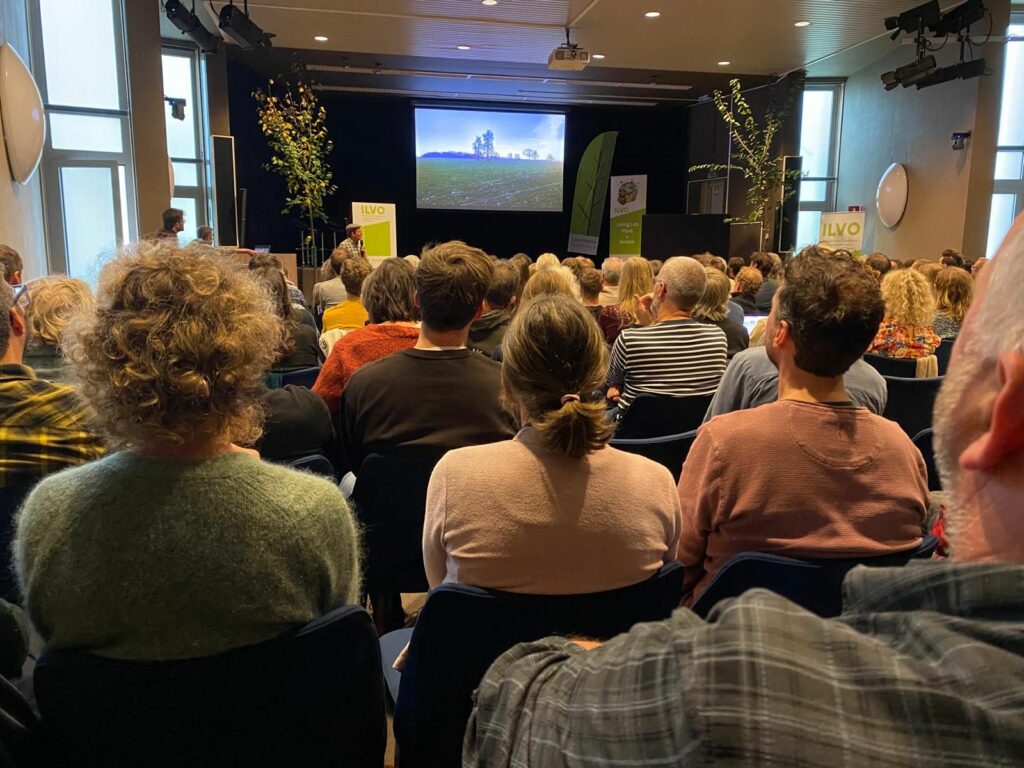
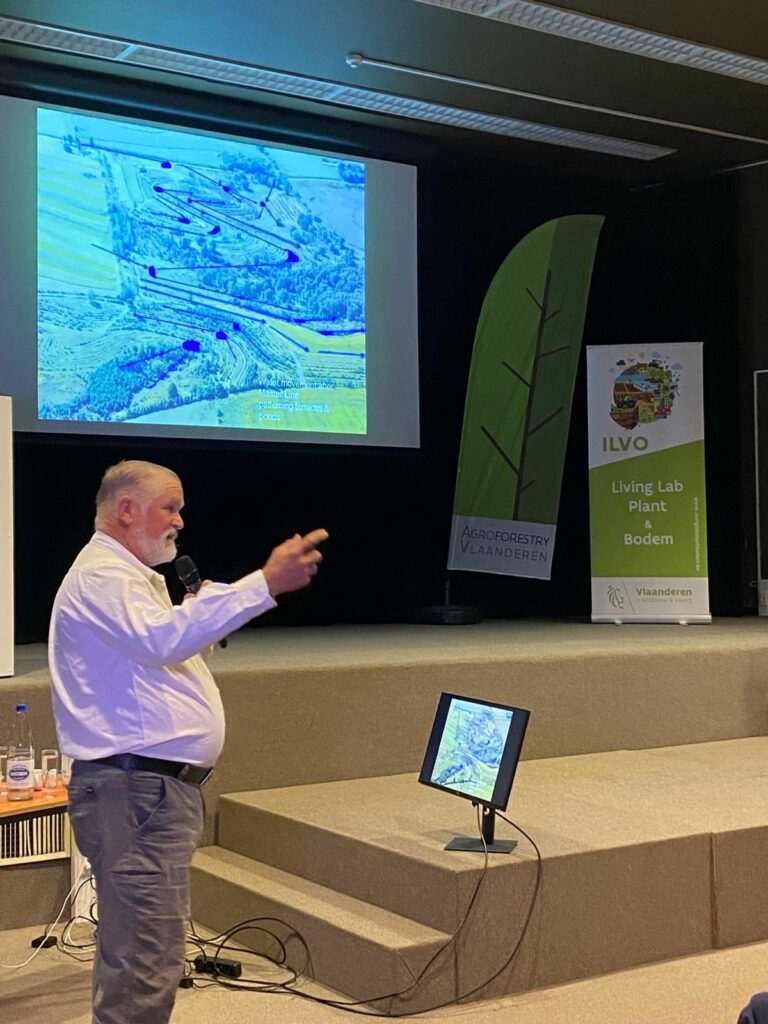
Copyright: EV ILVO
